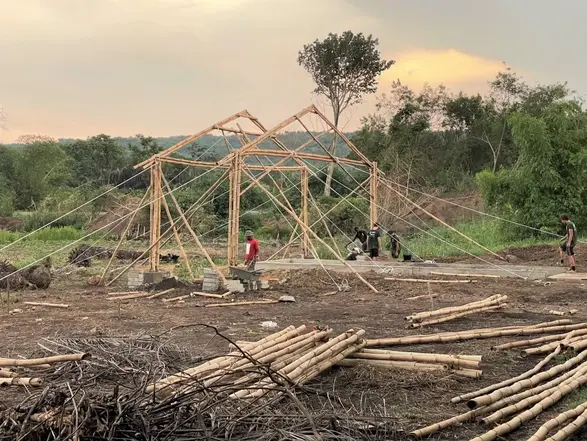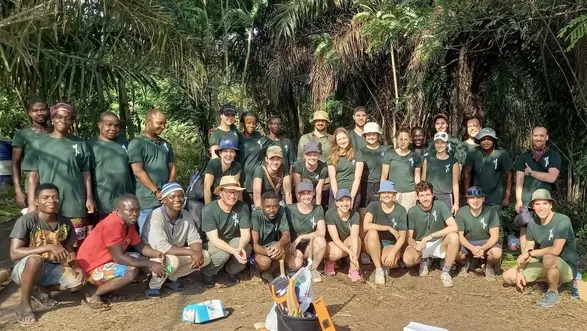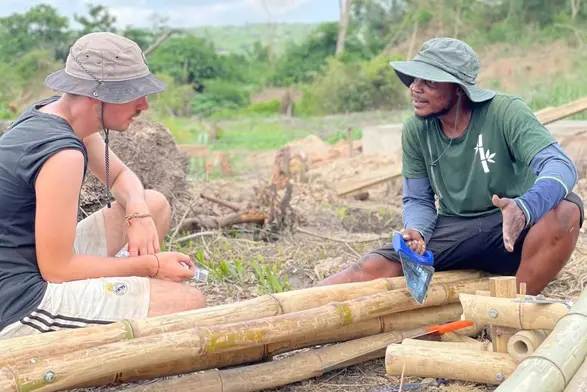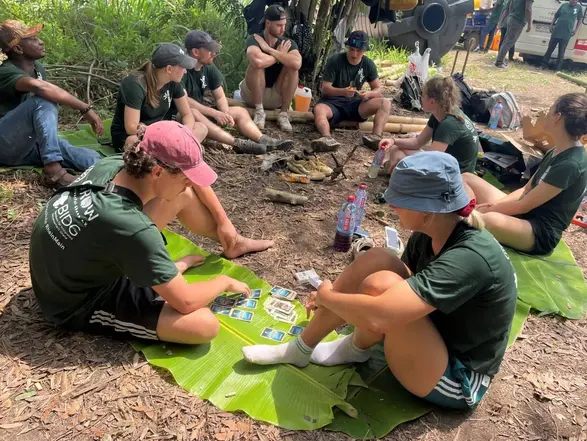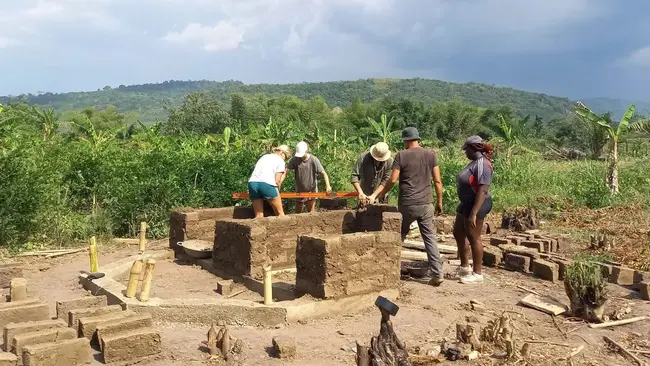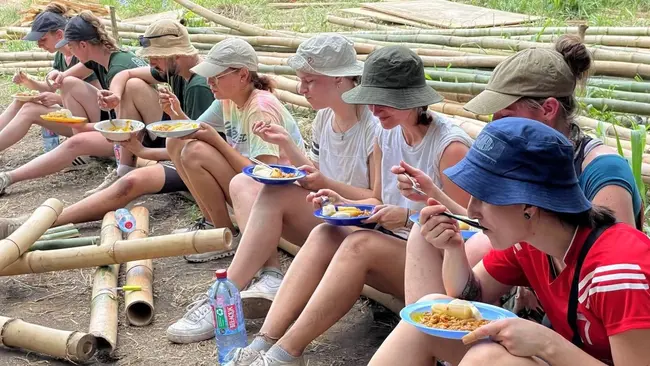Climate-friendly Construction in Ghana
Climate-friendly Construction in Ghana
03.04.2023 - 17 students from the Faculty of Architecture and Civil Engineering at Hochschule RheinMain (HSRM) recently spent two weeks in Ghana. Under the guidance of Prof. Sascha Luippold and adjunct instructors Christoph Diekhans and Jan Glasmeier, they completed a hands-on workshop in the field of climate-friendly construction. The excursion was the culmination of a cross-semester international project and focused on the construction of an exemplary bamboo training center with climate-friendly materials on the African continent.
Cooperative construction start for socially sustainable bamboo training center
Three semesters of preparation preceded the international excursion. In addition to cooperative concept development and planning seminars on climate-friendly construction in sub-Saharan Africa, these also included a Design-Build Summer School on practical construction with clay and bamboo on the Kurt-Schumacher-Ring Campus. In order to be able to apply the knowledge and skills acquired in this way under real conditions in a different climate zone, 17 students from the Architecture, Civil Engineering and Architectural Heritage Conservation bachelor's and master's degree programs have now travelled to Somanya. Together with the Ghanaian partner organizations Bamboo for Integrated Development Ghana, Advocates for Biodiversity Conservation and the International Bamboo and Rattan Organization, the German NGO Grow Colourful Ghana e. V. and the local population, the students began the first construction phase of a longer-term project for a bamboo training center. The workshop focused on the intercultural exchange of experiences on Construction with renewable and climate-positive raw materials as well as the concrete start of the socially sustainable educational project on site.
A bamboo training center is to be built there in several construction phases, which will include various functional areas and several building types in the final stage, including a campus with guest houses, workshops and training buildings as well as infrastructure facilities. The goal of the project is to establish a continuous value chain for the renewable raw material locally, from the cultivation of bamboo to its treatment and further processing to the building trade. In addition to its ecological impact, the project also creates economic prospects in rural south-eastern Ghana.
Construction site equipment and first construction phase
At the start of the project, the HSRM students built temporary toilets and shade roofs as part of the construction site set-up. Together with the local people, they carried out preparatory earthworks. Buildings were then measured and foundations concreted, clay bricks made and bamboo treated to make it more durable. A dip tank had already been concreted in advance to treat the bamboo with salt, which could be used directly for the building material. The first concrete construction phase of the training center then began with two secular buildings, a compost separation toilet and the workshop for bamboo treatment. The students had the opportunity to apply various techniques of clay construction and bamboo processing.
"In addition to the shared craft experiences, cultural exchange was a central element of the workshop. While cooking together in a simple field kitchen, the students got to know typical local dishes and methods of preparation. It was not uncommon for the shared meal to end in intensive discussions or improvised group games, so that the workshop will be remembered as a complete success at all levels," says Prof. Luippold, summing up with satisfaction.
